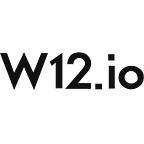We are developing a DAO for each project that launches its crowdfunding campaign on our site. This is a decentralized autonomous organization that will independently, transparently, algorithmically and honestly manage the collection of funds. It consists of three main components:
● A smart contract concluded by the parties. It deposits donations from donors (credit cards, electronic money, cryptocurrency, SMS, etc.) and transfers tokens in exchange for them. Its functions also include ensuring control over the implementation of the stages of the roadmap, transfer of the installment for the achievement of another milestone, and the return of funds to depositors’ wallets.
● Three mechanisms for deciding whether or not another milestone has been reached: 1) each investor determines the milestones by themselves. 2) the milestones are set by their votes. 3) 12 oracles pass the verdict.
● A public distributed registry, where all participants can track the movement of funds in real time.
Let’s talk more about the last component. With its help, the donors will be able to track how their donations are spent in real time. It doesn’t matter whether they are in India, Japan, Nigeria, London or the Solomon Islands. They can see at any moment where each cent invested is being spent.
I tried not to drink water at all, so as not to go to the toilet.
2.5 billion people (a third of the world’s population) do not have access to clean toilets. 2 billion suffer from infections due to lack of hygienic conditions. Recently, thanks to the charity initiative “Security, Privacy, Dignity”, 6,000 students in schools in Calcutta (India) have gained access to new, shining, clean sanitary facilities. There is still a lot of work for volunteers, donors and organizers. This problem exists not only in the capital. In the whole state of West Bengal, there is no normal sanitation, and now it is the main obstacle to quality education. If the men can still somehow tolerate it, then the girls do not stand up and drop out of school.
- “The smell was so unpleasant and we didn’t want to go to the toilet and held back the urge until we got to the house. I tried not to drink water at all, so as not to go to the toilet,” says 14-year-old Laxmi Biswas.
- “Just washing your hands was also a problem. The groundwater is poisoned by arsenic. We had to use buckets of water from the pond. This has repeatedly led to illnesses among the children,” says teacher Banani Parbat.
Fortunately, the school where Laxmi studies and Banani teaches now has an excellent bathroom, changing rooms, a filter system and running water. But there are still dozens, if not hundreds of problematic schools.
Our team proposes to use IT technologies to conduct such charity campaigns. The public distributed registry is one of them.
Donors donating money to the campaign can see how their contribution of volume X is deposited in tokens in the escrow account. Next, the smart contract transfers the first installment from the deposit to the organizer’s wallets — 5% of all donations collected for the first stage of the roadmap. Suppose it is the purchase of tiles, paint, PVC doors and other materials for repairs.
Each donor sees online how 5% from their contribution is transferred to the public wallet of the organizer. The latter cashes them in Indian rupees, buys materials in local stores, pays for shipping and loads all the checks into the registry. Cashing and checks are also always available for monitoring by the donors.
The first stage of the roadmap is completed and confirmed. Next is the purchase of water pipes. The second installment of 10% is sent to the organizer’s account. The pipe manufacturer accepts cryptocurrencies for payment and therefore receives payment to their public wallet. This transaction is also tracked in the distributed registry.
Each donor now has an escrow account of X-5% -10%. If the implementation of the second stage is not confirmed, they will be able to return this amount via a request in the smart contract.
Benefits for donors result in benefits for projects that launch charity campaigns. They are provided with unprecedented trust of donors and can use the public distributed registry as a basis for marketing (more on this here). Donors have never been so involved in the process, and never before has crowdfunding been so interactive. Also, the project owner can always check each transaction, the total amount of funds raised, and their spending, all via a special link available in their personal account. Paperwork can be reduced to a minimum. Operations are also automated with the help of smart contracts.
